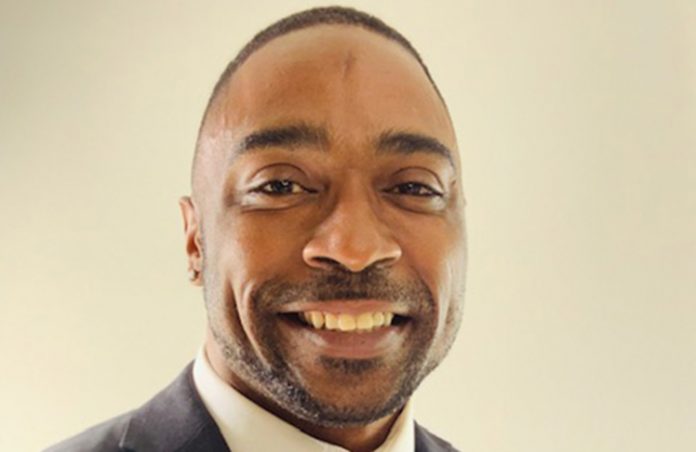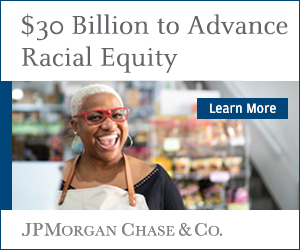By Aaron Allen, The Seattle Medium
Many experts agree that Black businesses have a direct impact on the economic plight of local Black communities. A strong black business community usually represents a very strong Black community that is full of opportunities and growth.
Due to the COVID pandemic, 400,000 Black-owned businesses struggled between February and April 2020, making up 41 percent of those that permanently closed their doors.
Unfortunately, the struggles for Black-owned businesses did not begin with the pandemic. According to The JPMorgan Chase Institute, Black-owned businesses more so than not faced lower profit margins, had less access to cash, lower revenues and were marginalized among companies that have external financing, when compared to other businesses.
Tristan Lockhart, a Business Relationship Manager for Chase, says that it is important for companies like Chase to help provide pathways for businesses, particularly Black businesses, to thrive.
“As a Business Relationship Manager, I am here to provide advice, education, supporting local businesses and it is such a blessing to be able to be a part of this and to be a part of the community I serve,” says Lockhart.
“For me it has always been about impact,” he added. “I knew in order to get things done in life people in one way, shape or another, are going to have to leverage their financial institutions.”
Prior to getting into Banking, Lockhart realized that many Black businesses were lacking in knowledge when it came to financial literacy. He found that while many of the business owners were highly skilled in their chosen profession, some of them lacked the “education or ability to articulate” the type of financial tools that they needed in order to be successful and take their business to the next level.
“I notice a big education gap right from the beginning and it has always been my goal to see how I can bridge financial institutions to consumers through education and obviously through that comes profitability,” say Lockhart. “You really have to have a full and transparent, trusting conversation of the positive things your business is doing and some negative aspects that may come up but I would say in educating a client [you need to have a deep conversation with them in order] to really understand their goals even more.”
In an effort to increase diversity and inclusion, JPMorgan Chase recently announced a five-year, $30 billion Path Forward commitment to help close the racial wealth gap in traditionally underserved Black and Latinx communities. The commitment comes on the heels of the company’s Small Business Forward initiative, which they launched in 2015.
Through the Small Business Forward initiative, JPMorgan Chase has provided more than $200 million in philanthropy, including $20 million in COVID-19 relief, to support underserved small businesses in cities around the world. These funds provided access to capital and technical support to more than one million diverse, small businesses, which have raised nearly $10 billion in capital and increased revenue by an average of 22 percent.
“Chase’s commitment to diversity and inclusion is more than ever present within the firm,” says Lockhart. “We have doubled down our commitment and committed $30 billion in inclusion and diversity with different types of programs. Specifically, community banks that are about education and financial literacy. And so, you’re really going to hear and see a lot more about community banks or branches and that’s going to be a center piece where we can add value.”
Lockhart has fully embraced Chase’s commitment to Black businesses and says that there are several steps that Black business owners can take in order to overcome some of the challenges they face and better position themselves for long term success. These steps include:
• Optimize working capital and cash flow – Working capital is essential to every business. This allows them to stay open, fund overhead, and invest in their future. Yet, according to JPMorgan Chase Institute research, Black-owned businesses today hold materially less cash than white-owned organizations.
• Leaning into digitization – The COVID pandemic accelerated the digitization of business to help businesses remain competitive and to have the ability to stay open. JPMorgan Chase’s Business Leaders Outlook Survey found that more than half of midsize businesses have increased their use of online banking and treasury tools, including electronic payments, since the start of the pandemic.
• Focus on adaptability and resiliency – COVID has forced business owners to re-evaluate their business plans and put a spotlight on the importance of creating a robust plan for hard times or the unexpected. More than half of businesses are taking action to safeguard their business’ future in this changing environment. For example, cybersecurity has become one of the most important pillars of business resiliency. To help protect their organizations against cyberattacks, executives today are making employee education and training their top priority.
• Coming together to support Black-owned businesses – The local business community has an opportunity and a responsibility to lean in and better support Black business owners—whether it’s through advice, resources, mentorship or investment.
Lockhart believes that representation and personal connections are key when it comes to business owners having a positive relationship with financial institutions. He also believes that financial education and literacy are important, but it is equally important to have someone who has empathy and a sense of understanding to help business owners make financial decisions that will make their journey much smoother.
“Representation is key,” says Lockhart. “I think I have had great success and support from Chase when it came to representation, I am an African American Business Relationship Manager, I think that it is very critical for the client to understand that we are hiring great talent.”
“When we look in different spaces and we lack representation, it limits where we think we can go, and I am fortunate to be able to show that there really is no limit [to what we can achieve],” added Lockhart. “And the more that we are representing, not only Black businesses and African American employees of my stature, but we are including so many diverse employees in our firm, [it is my hope], over time that it will inspire the community around us.”
























